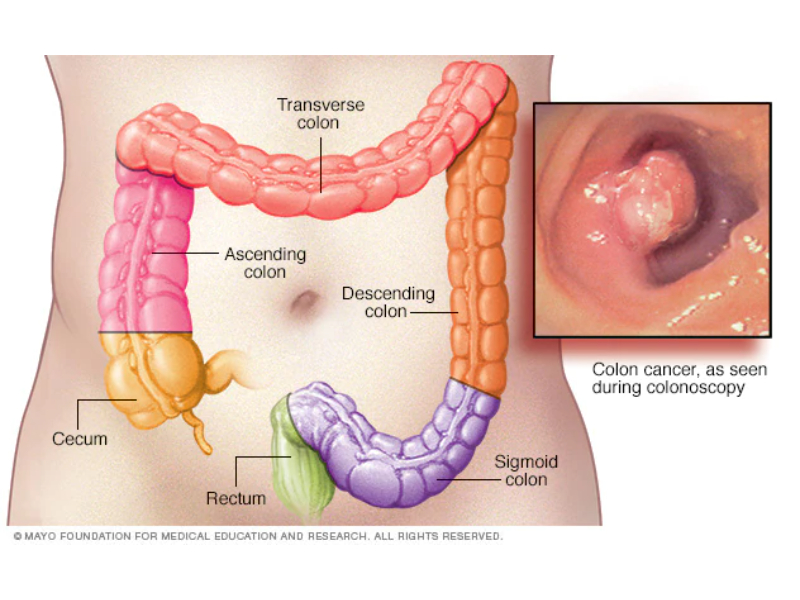Colon cancer, also known as colorectal cancer, is a form of cancer that arises in the colon or rectum, parts of the large intestine that are crucial for the digestive process. It’s a significant health concern worldwide and is among the leading causes of cancer-related deaths. Understanding the risk factors, symptoms, diagnosis, and treatment of colon cancer can help in its prevention and early detection, potentially saving lives.
Risk Factors
Several factors can increase the risk of developing colon cancer:
- Age: The majority of people diagnosed with colon cancer are older, typically over 50 years of age. However, it can occur at younger ages too.
- Personal or Family History: Having a history of colon cancer or polyps in the family increases one’s risk. Also, individuals with a history of inflammatory intestinal conditions, like ulcerative colitis and Crohn’s disease, are at a higher risk.
- Lifestyle Factors: A diet high in red or processed meats, physical inactivity, obesity, smoking, and heavy alcohol use can contribute to an increased risk of colon cancer.
- Genetics: Genetic syndromes passed through generations, such as familial adenomatous polyposis (FAP) and hereditary non-polyposis colorectal cancer (Lynch syndrome), significantly increase the risk.
Symptoms
Symptoms of colon cancer may not be present in the early stages, but when they appear, they may include:
- Changes in bowel habits, such as diarrhea, constipation, or narrowing of the stool, that last for more than a few days.
- Rectal bleeding or blood in the stool.
- Persistent abdominal discomfort, such as cramps, gas, or pain.
- A feeling that your bowel doesn’t empty.
- Weakness or fatigue.
- Unexplained weight loss.
Diagnosis
Early detection of colon cancer can significantly improve the chances of a successful treatment outcome. Screening methods include:
- Colonoscopy: A procedure that uses a long, flexible tube equipped with a camera to view the entire colon and rectum.
- Stool Tests: Tests that check for blood or genetic markers in the stool that might indicate cancer.
- Imaging Tests: Techniques like CT colonography (virtual colonoscopy) to create detailed pictures of the inside of the colon.
Treatment
Treatment for colon cancer depends on the stage of the cancer, its location, and the overall health of the patient, including:
- Surgery: To remove the cancerous sections of the colon.
- Chemotherapy: Uses drugs to kill cancer cells, often used after surgery to kill any remaining cancer cells.
- Radiation Therapy: Uses high-energy rays to target and kill cancer cells, more commonly used for rectal cancer.
- Targeted Therapy: Focuses on specific abnormalities within cancer cells.
- Immunotherapy: Uses the body’s immune system to fight cancer.
Prevention
Preventive measures can significantly reduce the risk of developing colon cancer. These include maintaining a healthy lifestyle, regular screening, especially for those at higher risk, and possibly medication for those at high risk due to genetic factors.
Colon cancer, when detected early, can often be treated successfully. Awareness and education about the risk factors, symptoms, and screening options are critical in the fight against this disease. Regular screening is especially important since it can detect polyps before they become cancerous, thereby preventing the development of cancer.


